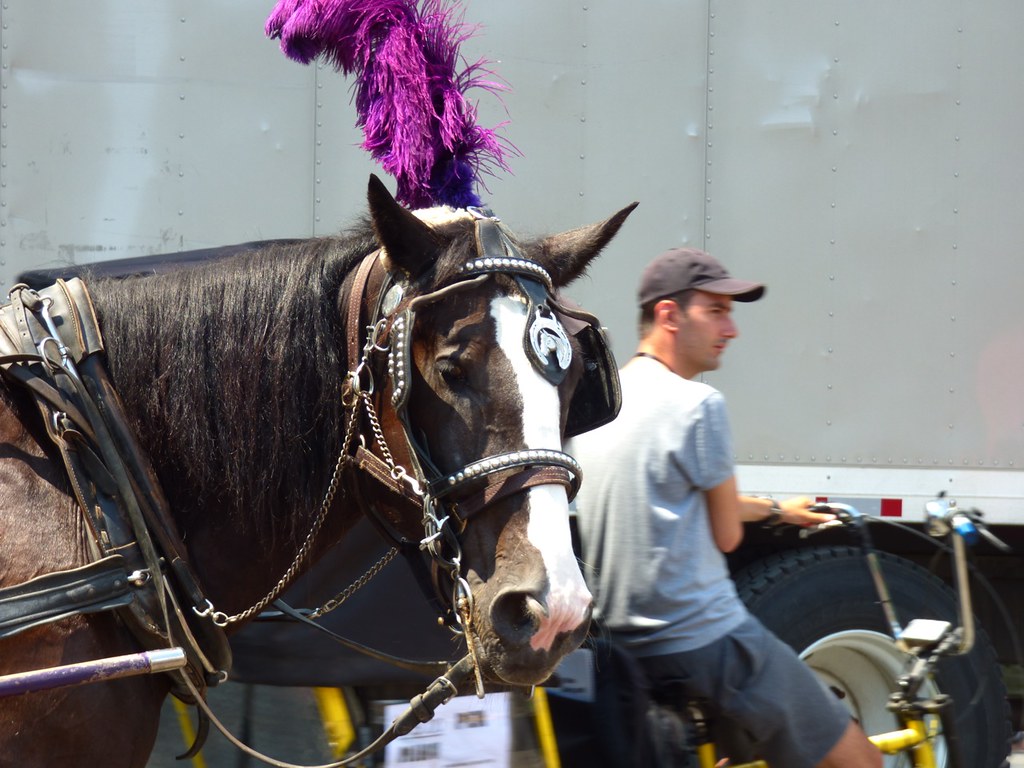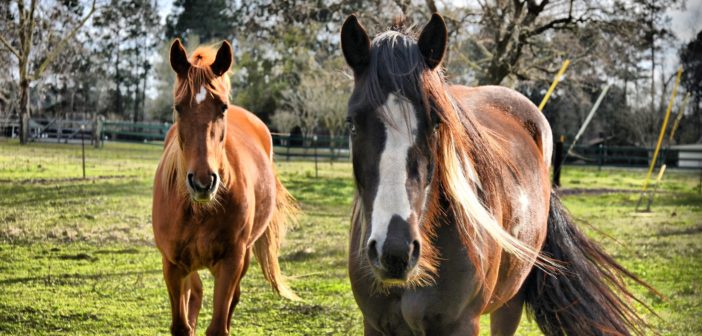The US House Subcommittee on Health of the Committee on Energy and Commerce held a hearing yesterday on “Improving Safety and Transparency in America’s Food and Drugs.” Included on the agenda was the Safeguard American Food Exports (SAFE) Act (H.R. 961), federal legislation that would permanently ban horse slaughter in the United States and end the export of American horses for slaughter abroad.
Introduced by Reps. Jan Schakowsky (D-Ill.) and Vern Buchanan (R-Fla.) in 2019, the SAFE Act currently has 225 House cosponsors and is supported by leading animal welfare groups, including the ASPCA® (The American Society for the Prevention of Cruelty to Animals®), the Animal Welfare Institute (AWI), The Humane Society of the United States (HSUS), the Humane Society Legislative Fund (HSLF), and Return to Freedom Wild Horse Conservation (RTF).
“I am grateful to Chairwoman Eshoo for including the SAFE Act in today’s hearing,” stated Schakowsky. “The SAFE Act is vital for the health of consumers and well-being of horses. Horses are ingrained in our national story and deserve far better than being exported in inhumane conditions for slaughter. Many of the substances used to treat horses are banned by the FDA, making horse meat dangerous for human consumption. As a lifelong advocate for consumer protection and animal welfare, I welcome the focus on this legislation.”
“The slaughter of horses for human consumption is a barbaric practice that has no place in American society,” said Buchanan, who serves as co-chair of the Congressional Animal Protection Caucus. “I will continue to lead the charge with Representative Schakowsky to eradicate this cruelty.”

The Subcommittee heard testimony from Nancy Perry, senior vice president of government relations for the ASPCA, who said: “The ASPCA is working resolutely in concert with other organizations across the country to solve equine welfare issues on the ground, but we cannot fully succeed while the slaughter pipeline remains open. With the strong support of the American public and a clear FDA mandate to regulate and ban toxic substances routinely given to horses that threaten public health, it is time to end the slaughter of American horses for human consumption. We thank the committee for hearing this legislation, and we urge Congress to pass the SAFE Act to protect our horses as well as public health.”
According to Cathy Liss, president of AWI, “The slaughter of horses for human consumption is a very serious animal welfare issue and public health risk. The Animal Welfare Institute has long worked to expose the rampant cruelty and dishonesty inherent in this industry—from the kill-buyers who mislead horse owners in order to obtain animals, to the brutality inside the slaughterhouse.”
Liss added: “In addition to the terrible abuse that goes hand in hand with horse slaughter, the food safety threats that plague the industry as a result of the drugs administered to horses cannot be ignored. For these reasons, the Animal Welfare Institute strongly supports the SAFE Act and is grateful for the attention of the Energy and Commerce Committee.”
“Walk into any stable in this country and you’ll find ointments, medications, and other products that are clearly labeled ‘Not to be used on animals intended for human consumption.’ Yet thousands of horses with these toxic chemicals coursing through their veins are shipped to slaughter for that very purpose,” said Kitty Block, president and CEO of the Humane Society of the United States. “The process is a terrifying and gruesome end for these companions, as it cannot be done humanely due to their anatomy and flight response. The fact is American horses should not be on anyone’s dinner menu—here or overseas.”
“That more than 60,000 horses—including an unknown number that once roamed freely on our public lands—are shipped to their deaths in foreign slaughterhouses each year is an unnecessary and wholly un-American betrayal of the animals that helped us build our country, continue to serve humanity, and inspire people around the world as a symbol of the American spirit. There is zero defense for this cruel industry,” said Neda DeMayo, president of Return to Freedom Wild Horse Conservation. “RTF is grateful to Chairwoman Eshoo and Ranking Member Burgess for holding today’s hearing and urges swift passage to the floor of this important bipartisan legislation.”

In recent years, the number of American horses shipped to Canada and Mexico to be slaughtered for human consumption in foreign countries has dropped, making this an opportune time for Congress to close this legal loophole that causes so much suffering.
These horses are not raised for food but are purchased by contract kill-buyers at auctions, even when other owners and horse rescues stand ready to take them. The horses then endure grueling journeys to slaughter plants, packed into large trailers in unfamiliar groups. Due to these fearful, stressful conditions, they can be injured or even trampled to death en route. Once at the slaughterhouse, horses are driven into a “kill box” where they are shot in the head with a captive bolt gun—a process that can be imprecise due to the biology and fight-or-flight nature of equines and the high-stress environment of the slaughter facility. As a result, some horses endure repeated excruciating blows or may remain conscious during the kill process.
The SAFE Act would also protect consumers from dangerous American horse meat, which can be toxic to humans due to the commonplace, unregulated administration of drugs to horses. Horses are not raised for food, and over the course of their lifetimes, are routinely given hundreds of drugs and chemical treatments that are appropriate for horses but potentially toxic to humans if consumed. The U.S. Food and Drug Administration prohibits the use of more than 100 chemicals in animals intended for human consumption. Products as seemingly harmless as fly spray, pain relief, and de-wormers—all considered important for good horse care—contain banned, toxic ingredients.
The ASPCA, AWI, HSUS, HSLF, and RTF encourage the public to contact their US representatives and senators and urge them to cosponsor the SAFE Act, H.R. 961/S. 2006, and to do all they can to secure its swift passage in order to protect America’s horses and overall consumer health from horse slaughter.
Featured image: two horses. Image credit Karsun Designs, CC BY-SA 2.0.





